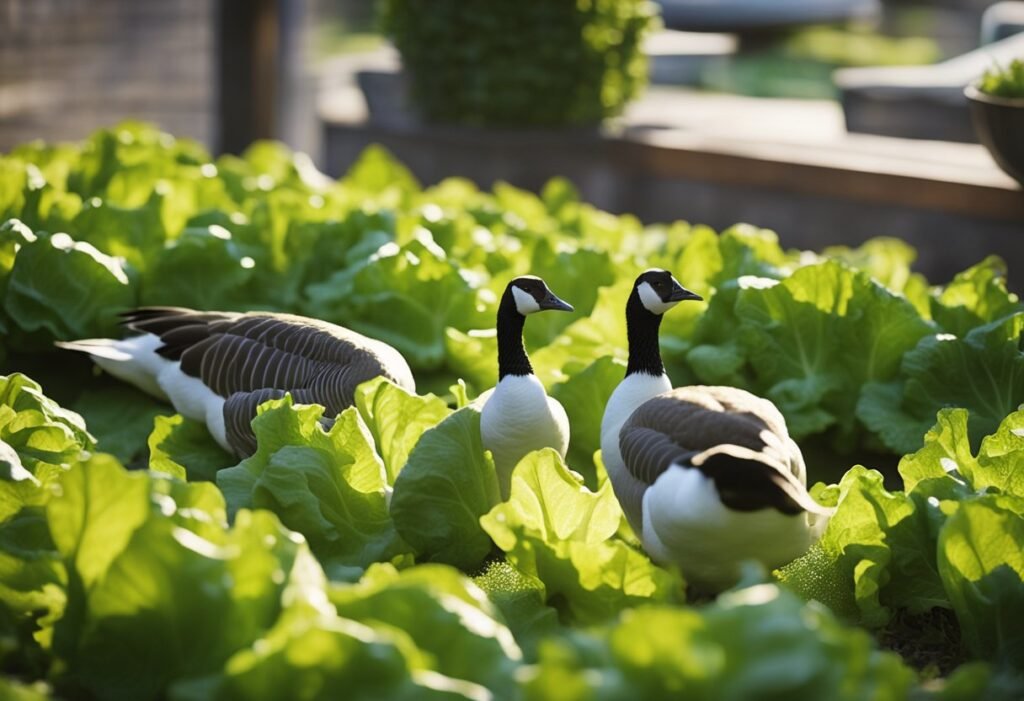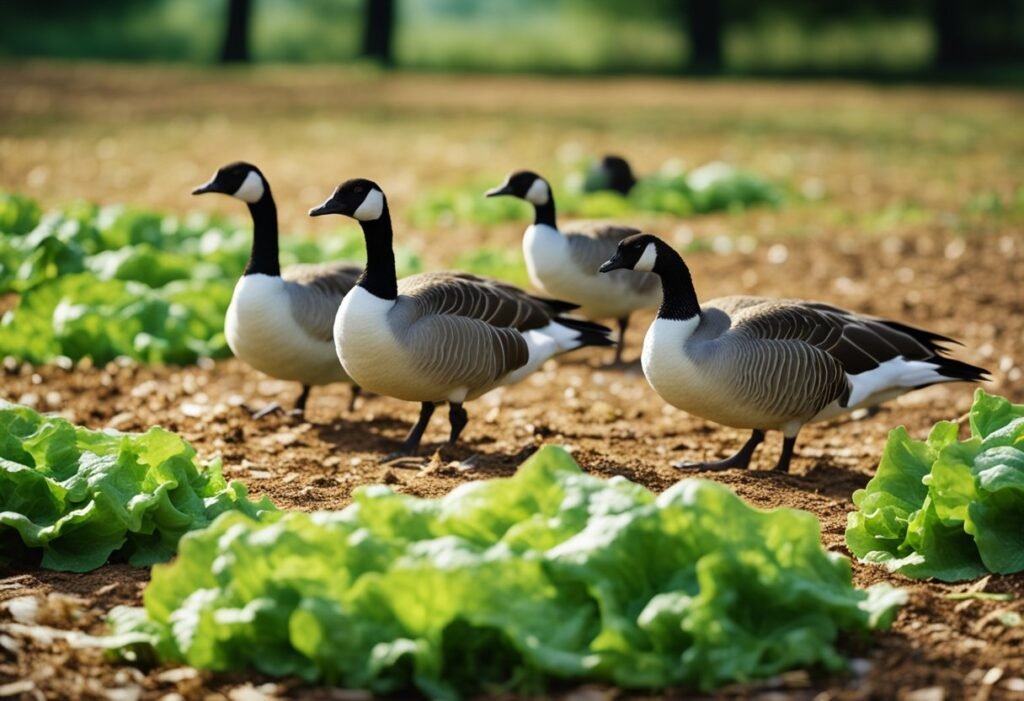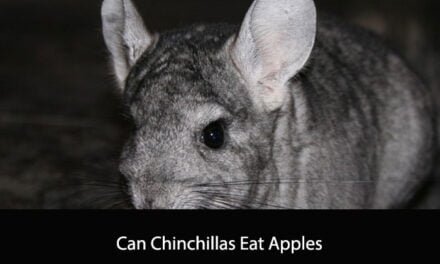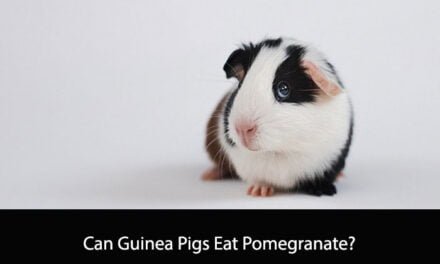Geese are known to be herbivorous birds, and their diet consists of various types of plants, grasses, and grains. However, if you are a new owner of geese or looking to feed some geese in your backyard, you might be wondering if lettuce is a safe and healthy option for them. In this article, we will answer the question, “Can geese eat lettuce?” and provide you with some valuable information about feeding geese.
Lettuce is a common vegetable that is often included in human diets. It is a low-calorie food that is rich in vitamins and minerals, making it a healthy option for us. But when it comes to feeding geese, you may wonder if lettuce is a suitable food for them. In this article, we will explore the nutritional value of lettuce for geese and whether it is safe for them to consume. So, let’s find out if geese can eat lettuce and what benefits it can offer to them.
Can Geese Eat Lettuce

We often wonder if geese can eat lettuce, and the answer is yes, they can. Lettuce is a safe and healthy food option for geese, and they can consume it without any issues.
Lettuce is a great source of nutrients for geese. It is low in calories and high in fiber, which makes it an excellent food choice for them. Geese can eat all types of lettuce, including romaine, iceberg, and butterhead lettuce.
However, it is important to note that lettuce should not be the only food source for geese. They require a well-balanced diet that includes other types of foods such as grains, seeds, and vegetables.
It is also essential to ensure that the lettuce is clean and free from any pesticides or chemicals. Geese can get sick from consuming contaminated food, and it can lead to serious health problems.
In summary, geese can eat lettuce, and it is a healthy food option for them. However, it should not be the only food source, and it is important to ensure that the lettuce is clean and free from any harmful chemicals.
Understanding Geese Diet

Geese are known to eat a variety of foods, ranging from grass and grains to insects and small animals. In order to maintain a healthy and balanced diet, it is important to understand the natural diet of geese and how to supplement it when necessary.
Natural Diet of Geese
Geese are primarily herbivores and their natural diet consists of a variety of plants, grasses, and grains. They are known to graze for hours, consuming large amounts of vegetation in a single day. Some of the common plants that geese eat include clover, dandelion, and chickweed.
In addition to plants, geese also consume small amounts of insects and small animals such as snails and worms. These sources of protein are important for their growth and development, especially during their early stages of life.
Supplementing Geese Diet
While geese can survive on their natural diet alone, it may be necessary to supplement their diet in certain situations. For example, during the winter months when vegetation is scarce, geese may require additional sources of food to maintain their energy levels.
One common supplement for geese is commercial feed, which is specially formulated to provide all the necessary nutrients and vitamins. It is important to choose a high-quality feed that is appropriate for the age and size of your geese.
Another way to supplement geese diet is by offering them treats such as lettuce, corn, and peas. While geese can eat lettuce, it should be given in moderation as it is not a natural part of their diet. It is important to avoid feeding geese any processed or salty foods, as these can be harmful to their health.
By understanding the natural diet of geese and supplementing it when necessary, we can help ensure that our geese are healthy and thriving.
Effects of Lettuce on Geese

Nutritional Value
Lettuce is a low-calorie and low-protein food that is not particularly nutritious for geese. While it does contain some vitamins and minerals, such as vitamin C and potassium, it is not a significant source of these nutrients. Therefore, feeding geese lettuce as a primary food source is not recommended.
Potential Risks
While lettuce is not toxic to geese, feeding them too much can cause digestive problems. Lettuce contains a high amount of water, which can lead to diarrhea and dehydration if consumed in excess. Additionally, lettuce contains a small amount of lactucarium, a milky sap that can cause mild sedative effects in humans and animals. While the amount of lactucarium in lettuce is not harmful to geese, it is still recommended to feed them lettuce in moderation.
In conclusion, while geese can eat lettuce, it should not be their primary food source due to its low nutritional value. Feeding them too much lettuce can also lead to digestive problems, so it should be given in moderation.
Feeding Lettuce to Geese
When it comes to feeding geese, it’s important to ensure that their diet is balanced and nutritious. While geese can eat a variety of foods, including vegetables, fruits, and grains, it’s important to know which foods are safe and healthy for them.
Best Practices
When feeding lettuce to geese, it’s important to follow these best practices:
- Wash the lettuce thoroughly before feeding it to the geese.
- Remove any wilted or damaged leaves.
- Cut the lettuce into small pieces to make it easier for the geese to eat.
- Avoid giving geese large amounts of lettuce at once, as it can cause digestive issues.
Lettuce Types Suitable for Geese
Not all types of lettuce are suitable for geese. Here are some types of lettuce that are safe and healthy for geese to eat:
| Type of Lettuce | Description |
|---|---|
| Romaine | Has a high nutritional value and is rich in vitamins A and C. |
| Butterhead | Has a soft texture and is easy for geese to chew. |
| Red leaf | Has a slightly bitter taste and is high in antioxidants. |
It’s important to note that iceberg lettuce should be avoided, as it has very little nutritional value and can cause digestive issues for geese.
Overall, feeding lettuce to geese can be a healthy and nutritious addition to their diet when done correctly. By following these best practices and choosing the right types of lettuce, you can help ensure that your geese are getting the nutrients they need to stay healthy and happy.
Other Safe Foods for Geese
Aside from lettuce, there are a variety of other safe foods that geese can eat. Here are some options:
- Grains: Geese can eat a variety of grains, including wheat, barley, and oats. You can offer these grains to your geese in their whole form or as a mash.
- Vegetables: In addition to lettuce, geese can eat a variety of other vegetables, such as kale, spinach, and carrots. These vegetables can be fed raw or cooked.
- Fruits: Geese can eat a variety of fruits, such as apples, berries, and grapes. These fruits can be fed whole or cut into smaller pieces.
- Protein: Geese can also benefit from protein-rich foods, such as mealworms, crickets, and other insects. You can also offer them cooked eggs or small amounts of cooked meat.
It’s important to note that while these foods are safe for geese to eat, they should still be offered in moderation. Overfeeding certain foods can lead to health issues, such as obesity and digestive problems. As always, it’s best to consult with a veterinarian or avian specialist for specific dietary recommendations for your geese.
Foods to Avoid for Geese
As we all know, geese are herbivores and enjoy a variety of plants and vegetables. However, there are some foods that we should avoid feeding them as they can be harmful to their health.
One food to avoid feeding geese is lettuce. While lettuce is not toxic to geese, it can cause digestive issues if consumed in large quantities. Lettuce is high in water content, and geese that consume too much of it may experience diarrhea or other digestive problems.
Another food to avoid feeding geese is avocado. Avocado contains persin, which is toxic to birds and can cause respiratory distress, heart failure, and even death. It is best to keep avocado away from geese and other birds.
Additionally, geese should not be fed any foods that are high in salt, sugar, or fat. These foods can cause obesity and other health problems in geese, just as they can in humans.
In conclusion, while geese enjoy a variety of plants and vegetables, it is important to be mindful of what we feed them. Lettuce and avocado should be avoided, and geese should not be fed any foods that are high in salt, sugar, or fat. By being mindful of their diet, we can help ensure that geese remain healthy and happy.
Frequently Asked Questions

What do geese like to eat for treats?
Geese enjoy a variety of treats, including cracked corn, oats, wheat, and barley. They also enjoy fruits like apples, grapes, and watermelon.
What to feed geese?
Geese require a balanced diet that includes grains, grasses, and insects. A good feed for geese should contain about 16% protein and 3% fat. You can also supplement their diet with fresh vegetables and fruits.
Can geese eat cantaloupe?
Yes, geese can eat cantaloupe. It is a good source of vitamins A and C, which are essential for their health. However, it should only be given in moderation as it is high in sugar.
What not to feed geese?
Avoid feeding geese anything that is high in salt, sugar, or fat. This includes bread, chips, and processed foods. Also, do not feed them anything that contains caffeine or alcohol.
Can geese eat strawberries?
Yes, geese can eat strawberries. They are a good source of vitamin C and antioxidants. However, like cantaloupe, they should only be given in moderation as they are high in sugar.
What vegetables can geese eat?
Geese can eat a variety of vegetables, including lettuce, spinach, kale, and carrots. They also enjoy fresh herbs like parsley and basil. Just make sure to chop them up into small pieces before feeding them to your geese.





